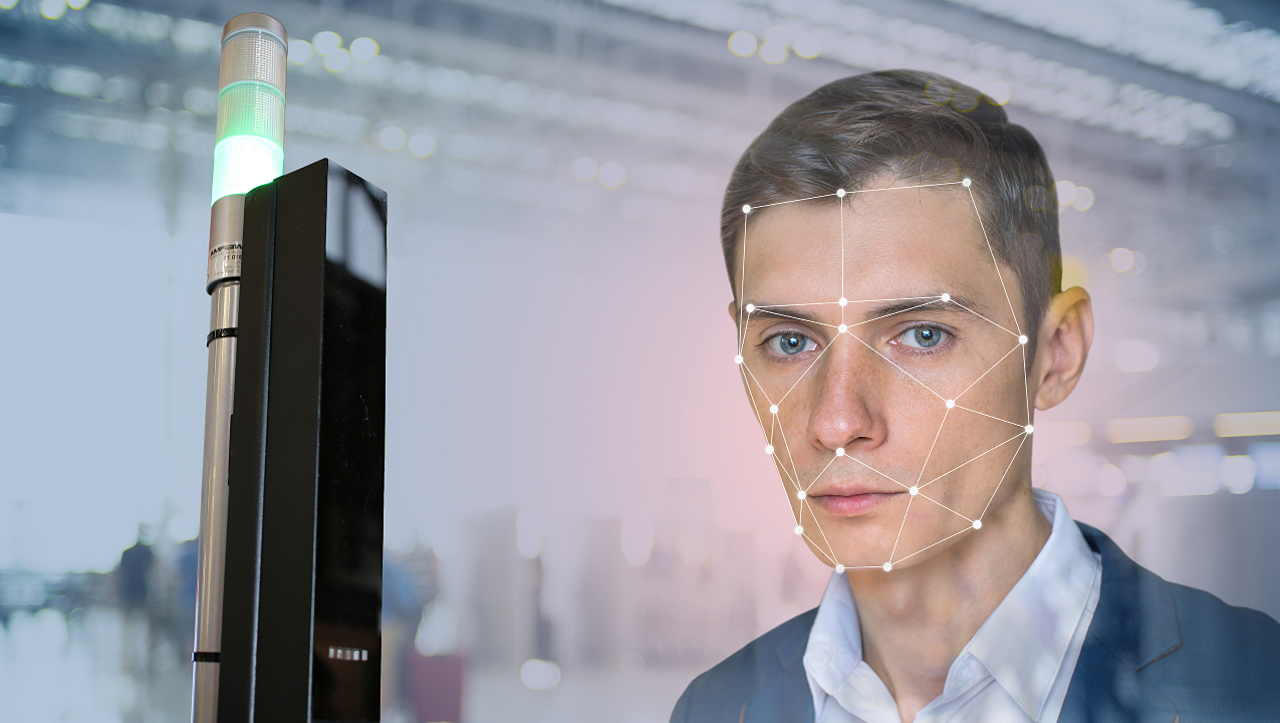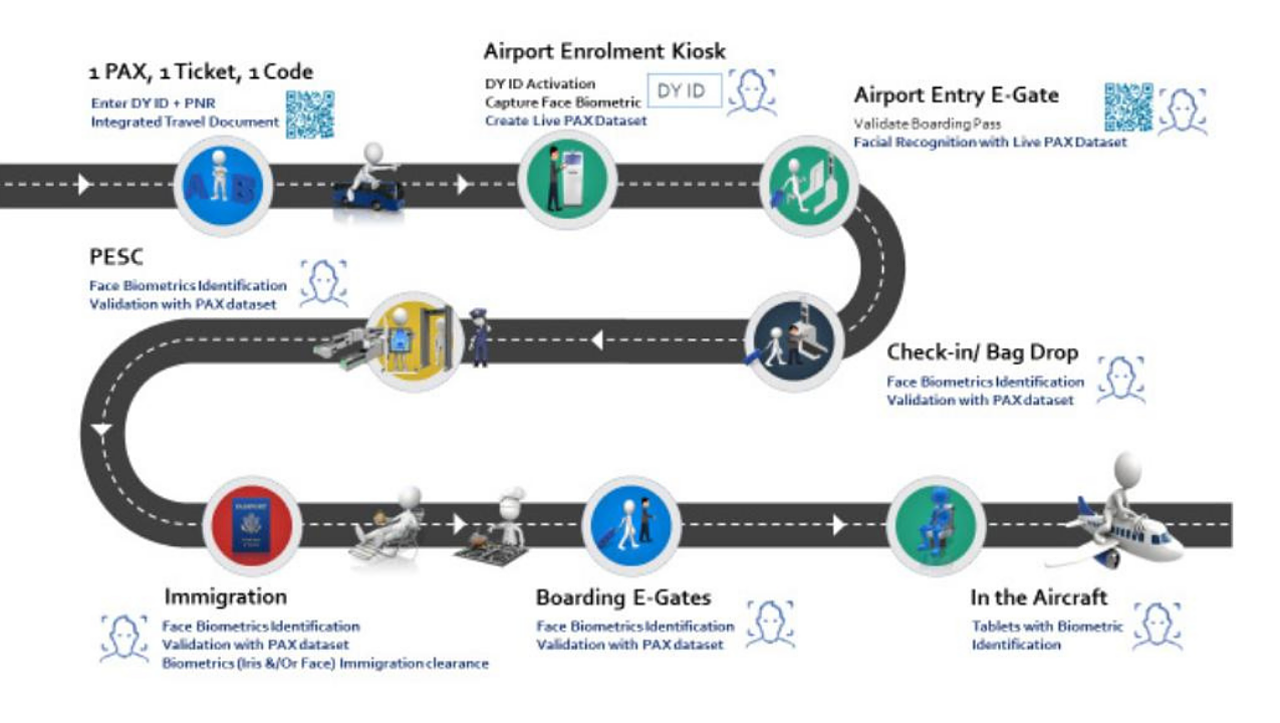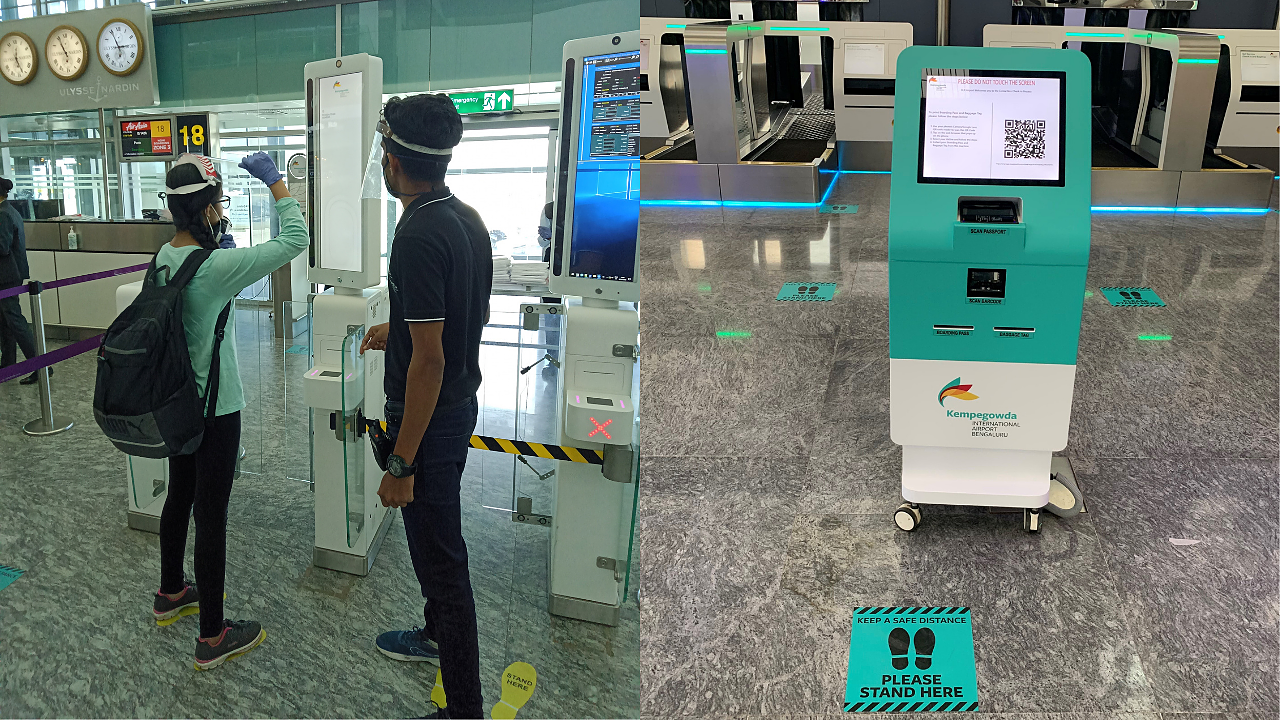
The disruption wrought on air travel by the COVID-19 pandemic will drive a change in customer preferences towards greater adoption of convenient and efficient self-service options for passengers both at the airport and on the aircraft.
Regaining passenger confidence in air travel will necessitate the use of self-service technologies where physical contact between travellers and service providers at the airport, on the aircraft is minimised.
To address COVID-19 related concerns, airports and airlines are already working together to minimise the physical interaction at four important passenger journey points at the airport, i.e. Terminal Entry, Kiosk Check-in / Self Bag Drop, Entry to Security Hold Area and at the Boarding Gate. In the post-pandemic world, touchless interactions will play a key role in ensuring safety throughout the passenger’s journey and will be a deciding factor for the customers to choose an airline.
New normal
The continuously changing travel environment and the emergence of new COVID-19 variants will make encouraging passengers to return to the skies a challenge, and in this scenario, air travel will require an entirely new set of protocols to rebuild passenger and regulatory confidence. In a post-pandemic world, touchless technologies will play a key role in ensuring safety throughout the passenger’s journey. The integration of technology with the adoption of safety measures is already helping rebuild passenger confidence in air travel. These developments will help redefine the new travel norms and drive solutions that ensure adherence to social distancing norms and enable a safe and contactless end-to-end travel experience.
The adoption of passenger self-service technologies across Indian airports is already quite advanced due to India’s Ministry of Civil Aviation’s (MoCA) ‘DigiYatra’ initiative, which was announced in August 2018. DigiYatra will deliver a seamless, hassle-free passenger experience at Indian airports, with the introduction of facial recognition enabled e-boarding systems for passengers (a manual option will also be retained). Once trials are completed, this template for e-boarding systems will be applied at airports all across India. Indian airlines are already working closely with the Airport Authority of India (AAI) to enable paperless passenger experiences.

Airlines and airports are now looking at leveraging biometric technology to make air travel increasingly seamless across customer touchpoints. Under the digital boarding process, customers can enrol themselves using their ID and biometric data, combined with their flight details, before entering the airport terminal. As they navigate through the airport, their travel documents can be verified at every touchpoint using biometric technology, negating the need to use physical copies of documents. Biometric data will be used only for authentication and verification of passengers to assist at all the airport processes, and the passenger data will be deleted within a few hours of flight completion.
Airlines ready for touchless future
Full-service carrier, Vistara has been at the forefront of embracing new technologies to offer a seamless and hassle-free travel experience to its customers. In 2019, it became the first Indian airline to run trials of a biometric facial recognition entry and boarding solution for passengers flying within India. The trials were performed by the airline in partnership with several Indian airports.
Vistara is already offering Kiosk check-in (Scan-N-Fly), E-bag tag and automated baggage drop at some major airports. Vistara is constantly monitoring its facial recognition boarding solutions deployed for paperless journeys, and in 2020, more than 70% of the passengers who used the solution were satisfied with it. Vistara, which was already on the path of a digital transformation journey before the pandemic, has speeded up its efforts to offer touchless solutions such as the casting of kiosk screens on passenger mobile, scan & fly, self-tagging, self-baggage drop, self-boarding, e-gates, biometrics/face recognition, e-boarding passes and bag tags.

Air Asia India is another airline that has speeded up its efforts to provide convenient and efficient self-service options to customers and has adopted DigiYatra at Kempegowda International Airport, Bengaluru, to offer fully biometric-based self-boarding solutions. In June 2020, it became the first and only domestic airline to launch an innovative door-to-door baggage delivery service in branded AirAsia FlyPorter. The service allows guests flying with AirAsia India the luxury of doorstep baggage pick up as well as the option to continue their journey to their final destination within the city on arrival without having to carry their baggage, queue at the baggage drop counters at departure or the baggage carousel on arrival and have their bags disinfected and delivered in sanitised vehicles.
Indian carriers such as IndiGo, Vistara, Air Asia India, Go First (earlier Go Air), and Air India all operate Airbus A320 aircraft equipped with High-Efficiency Particulate Arrester (HEPA) filtration systems. These systems can filter 99.99% of dust particles and airborne contaminants such as viruses and bacteria. Aircraft cabins are hence relatively safe to spend extended periods in, as the risk of cross-contamination reduces due to a constant ‘downwash’ of air @1m/sec. This ensures that the cabin air is refreshed every three minutes, ensuring the highest possible quality of air and aircraft filtration systems offer a similar level of performance to those used to keep the air clean in the hospital surgical operating rooms. Combining touchless services and a safe cabin environment will provide the requisite confidence builders for those willing to travel by air as pandemic restrictions ease in the coming months.